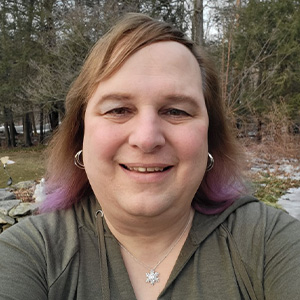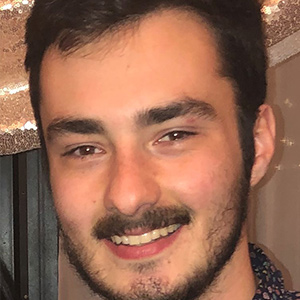International Transgender Day of Visibility
As the month comes to a close, we as a local and national community band together for the 13th annual commemoration of International Transgender Day of Visibility.
International Transgender Day of Visibility, which was founded by transgender activist Rachel Crandall Crocker in 2009, is held annually on March 31. The holiday honors the personal declarations the global transgender and non-binary communities have made, as well as highlights the discrimination and mistreatment facing the communities.
At the federal level, International Transgender Day of Visibility was first marked by President Joe Biden on March 31, 2021, making it the first time a United States president has ever issued such a proclamation, according to Crandall Crocker.
“Transgender Day of Visibility recognizes the generations of struggle, activism, and courage that have brought our country closer to full equality for transgender and gender non-binary people in the United States and around the world,” the White House said in a statement released last year. “Transgender Americans continue to face discrimination in employment, housing, health care, and public accommodations. The crisis of violence against transgender women, especially transgender women of color, is a stain on our Nation’s conscience.”
At a local level, Manchester has dedicated itself to becoming a welcoming, inclusive and accessible town for all. However, despite these efforts, the challenges facing the local transgender community still loom large. Finn Rowan, a Manchester-based musician, described his struggles as a transgender man.
“There’s a lot of extra steps I have to take in order to live my life comfortably. Steps like doctor visits, bloodwork, pharmacy trips, phone calls to my insurance company, [and] court appearances,” Rowan said. “If I’m being honest, these things aren’t even the hard part. What’s difficult is the people you have to interact with on any given day.”

One of the fundamental purposes of International Transgender Day of Visibility is to provide a spotlight for those who wish to share their stories, whether it be their successes or challenges, moments of triumph or complications. For many, however, putting themselves in the spotlight can lead to an even greater risk of persecution, Rowan said.
“I can only speak for myself…because I’m a young, white trans man living in Manchester. But I’m still scared,” Rowan said. “Even answering these questions, I wonder who will be reading it. Will this be the first time someone has listened to what a trans person’s life is like or do they thing my existence is fake? That’s the risk I take every day leaving the house to live my life, but I do it anyway.”
While challenges at the local level threaten the rights and self-expression of trans people, the national threats facing transgender youths can often feel like an even more insurmountable obstacle. With legislation targeting transgender youth, athletes, and parents of transgender children becoming ever more prevalent in some states, the battle for legal equity seems terrifyingly out of reach, Rowan said.
“I am sad that there are kids growing up right now that are probably scared that they are transgender because their parent might be charged with child abuse, when real abuse is forcing your kid to live their life as someone that they are not,” Rowan said. “The only things these laws will do is lower the chance of trans kids surviving past 18.”
In the face of legislation, many organizations have stepped forward to advocate for the LGBTQ+ community, highlighted by organizations such as PFLAG. PFLAG, which is “the first and largest organization for [LGBTQ+] people, their parents and families, and allies,” is dedicated to advocating for impacted communities at a local, regional, and federal level.
When recognizing International Transgender Day of Visibility, Lindsey Pasquale, Northeast Regional Director for PFLAG National, said the first step should be to recognize what the holiday actually symbolizes.
“It is an anthem,” Pasquale said, speaking of the holiday. “It is an anthem, not [Pride Month]. It is about visibility, not necessarily celebration.”

Transgender Day of Visibility is such a powerful holiday because it commemorates the “personal declarations” of trans and non-binary individuals, Pasquale said. However, those who have not come out should not be ridiculed or excluded for not having done so, Pasquale said, and they should receive whatever support they deem necessary.
“Not everyone is able to be out. People can have who they are weaponized against them,” Pasquale said. “Coming out could cause someone to lose their housing, lose the support of a parent…coming out could fundamentally change someone’s relationships.”
What can be done for all transgender and non-binary individuals, whether it is on International Transgender Day of Visibility or not, is to provide support for those who need it. PFLAG provides a variety of support systems, including digital groups, virtual panels, and surveys to better assess the needs of its communities. By doing so, PFLAG is able to assist LGBTQ+ communities where support is most needed, Pasquale said, taking some of the burdens off of marginalized individuals.
“You can’t live and breathe the pain [of having your existence questioned] 24/7. You have to be able to take a step back when others are able to take a step forward, Pasquale said.
One of the most effective ways to document the United States’ transgender population and better evaluate this community’s needs is the U.S. Trans Survey (USTS). The USTS, which was last performed in 2015, received nearly 28,000 submissions, making it the largest national survey of trans people. The USTS is the “main source of data about trans people for the media, educators, policymakers, and the general public,” and the survey will be relaunching in 2022 for interested participants.
To learn more about the USTS, to see the 2015 state reports, or to take the pledge for the 2022 USTS, please visit the U.S. Trans Survey’s official website.
For those looking for additional resources related to International Transgender Day of Visibility, please review the following digital resources:
- GLSEN: International Transgender Day of Visibility
- PFLAG: Nonbinary Resources
- PFLAG: Something to Talk About Live
- PFLAG: Transgender Resources
Follow along on Better Manchester for more International Transgender Day of Visibility content.
Questions about this article? Contact Culture Lab Coordinator James Costa.
Like this article?
Leave a comment
About Author

James Costa is the Neighborhoods & Families Coordinator for the Department of Leisure, Family, and Recreation. He began working with the division during his sophomore year at Manchester High School, and he is now a UConn graduate with degrees in Journalism & Film Studies.
Fun Fact #1: I won my car in a raffle during Manchester High School’s Project Graduation.
Fun Fact #2: My all-time favorite movies are All That Heaven Allows, Punch-Drunk Love & Twin Peaks: The Return.
